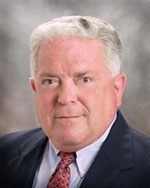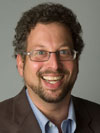| Home | Blog | Ask This | Showcase | Commentary | Comments | About Us | Contributors | Contact Us |

Watchdogs, meet a gadflyASK THIS | February 52, 2006Chas Freeman is a Washington insider with a twist. A former ambassador to Saudi Arabia, he now runs a think tank dedicated to raising questions that otherwise might never get answered -- or even asked -- because they're too embarrassing, awkward, or difficult. By Dan Froomkin Most people with a résumé like Chas Freeman’s are purveyors of conventional wisdom. A globe-trotting diplomat who was the ambassador to Saudi Arabia during the first Gulf War and Assistant Secretary of Defense in the Clinton administration, Freeman now runs a small Washington think tank. What could be more establishment than that? But Freeman is one of those rare insiders who is also a provocateur. His goal: Raising tough, penetrating questions that are more than a bit ahead of the curve -- making people uncomfortable, but ultimately the wiser for it. As president of the Middle East Policy Council, he organizes small, savvy Capitol Hill conferences on neglected and under-covered topics. His latest forum, for instance, was on the potentially revolutionary effect of Saudi Arabia’s accession to the World Trade Organization. (Trust me, it’s fascinating stuff.) And while his primary focus is on the Middle East, Freeman doesn’t stop there. In a recent interview, he raised fascinating questions about everything from Saddam Hussein’s trial and the perpetually doomed Kurds to American national complacency and the lack of a coherent political opposition in this country. Here are some of his questions, and his views about why they are important: Q. What is it that the enemies of the United States want? Freeman’s view: The argument that they hate us for who we are is not credible. So why is it that they have a problem with us? What is their agenda? Is there any part of it that is comprehensible? Only two people in the world actually believe that there’s any possibility of a new caliphate being established, stretching from Spain to Indonesia: Osama bin Laden and George W. Bush. So while it depends somewhat on the particular extremist, the fundamental answer is that they want to be left alone. There are no Muslim armies occupying the United States; it is we who are there, not they who are here. The fundamental demand is a measure of respect and distance. It’s not the case that they are objecting to modern technology or Pizza Hut or democracy. In fact, the extremists often argue for an Islamic democracy, an Islamic Republic. Their ideal is a democracy within the limits of the faith, much like the United States is a democracy within the limits of the Constitution. That’s why they are so fervently anti monarchist. The majority of people in the Middle East are as opposed to the extremist agenda as we are. After all, they’re the target of it. They don’t want to see the West turn its back on them. But in their region, the starting point must be their reform agenda, not ours. The notion that understanding means acceptance or that listening means agreeing is nonsense. It’s just an excuse for not making the effort to understand where others are coming from. If you can understand how others define the problems in their own region and what they think the causes are, you can begin to find antidotes to extremism that would otherwise not occur to you. You can certainly deal with things on a more realistic basis. So, rather than simply passing along what our own politicians and pundits say -- often on the basis of nothing but the congealed prejudice of stereotypes -- that people in the Middle East want, the press should be digging into what they are actually demanding, and why. Q. How does one avoid being charged with weakness (defeatism, capitulationism, etc.) if one advocates a measure of accommodation of one's enemies in order to get rid of them? Freeman’s view: Calling our campaign against terrorists a "war" is a transparent deception, intended to ensure that political correctness will preclude questioning about either the conduct of the campaign or the governance of the nation. To an unconscionable extent, this has worked. Consider a case such as the British vs. the IRA, where an approach based on a combination of very tough repressive measures with redefinition of the problem through negotiations produced a result. Chauvinists objected but the results made their denunciations of "appeasement" moot. Complex reasoning and sophisticated arguments always have a hard time against simple appeals to xenophobia and prejudice. In the end, however, there is no alternative to having the courage of one's convictions. In the case of the press, this means having the courage of one's professional duty, and applying inductive reasoning rather than enforcing the groupthink our leaders' manipulative rhetoric seeks to impose as a substitute for intelligent thought. Q. What are the merits of an American policy that encourages a degree of Kurdish autonomy and independence that is unacceptable to Turkey, Iran, or other citizens of Iraq? Won’t that inevitably lead to another instance of the sort of tragedy that is at the heart of modern Kurdish history? Freeman’s view: The Kurds are the big success story of Iraq so far. They actually like the American presence because it allowed them to become independent. But the same Kurds who were betrayed four times in the last century seem to be headed for yet another betrayal as the 21st century begins. Q. Have we given Iraq’s neighbors a “yessable” proposition? Freeman’s view: The situation in Iraq is pregnant with opportunities for American diplomacy if we chose to exercise it. Part of the answer in Iraq is to enlist the neighbors. None of Iraq’s neighbors has any interest in seeing either the Spanish Civil War or the 30 Years War next door. They may all have their own agendas, but they share an interest in limiting instability in Iraq. Q. What does the trend toward the liberation of the majority Shi'a in Iraq mean for Iraq? What does it mean for countries like Bahrain, which have Sunni rulers but a Shi'a majority population, or for regions of other countries like Al Hasa in Saudi Arabia, which is predominantly Shi'a, or for Kuwait, which has its own substantial Shi'a minority? What does it mean for the United States, for the region, for Israel, for our friends the Turks and others? Freeman’s view: Reporters should be asking more questions about the Iranian influence in the region, and about whether majoritarianism is in some circumstances oppressive. Q. Is the trial of Saddam Hussein promoting national reconciliation in Iraq -- or is it aggravating differences and contributing to the breakdown of Iraqi comity? Freeman’s view: Saddam’s trial is not performing the function of the truth commissions in South Africa or the Nuremberg Trials. It’s not writing an end to the story. In fact, it’s adding a source of irritation. The purpose of a truth commission is to allow everyone to vent, to have a cathartic experience, and put the past behind them. But you can’t do that now. The occupation is still in place. There are at least three different insurgencies: motivated, alternately, by nationalist resistance, religious- and honor-driven resistance and jihadi exploitation. There are at least three different civil wars: The Kurds are stealing Arab land; The Shi’as and the Sunnis are fighting; The Shi’as are fighting each other with death squads. And the government is using the power of the state without much regard for the rule of law. So the past is most definitely not behind them. Q. Are the Saudis winning or losing their battle against terrorism? Freeman’s view: The answer is that they’re winning. (We, of course, are not.) So what is it that they are doing right?
(See also Countering terrorism – for real, NiemanWatchdog.org, January 18, 2006) What the Saudis are doing is precisely how the British succeeded against the IRA. By contrast, we are not dealing with the issue of ideology. Worse, our actions are actually provoking and aiding recruitment. We’re killing a lot of people, but a great deal of those we are killing are not at all associated with extremists, they just happen to be in the way. Q. What happens to a democracy when there is no opposition? Freeman’s view: Consider our entry into Iraq. It was the product of bipartisan consensus. So when Democrats blame the Republicans for it, that’s a cheap shot. Where were the Democrats? Why did they not object? Democracy depends on the adversarial process. Are the Democrats performing that function? On countless issues, they are not. On many of the most important issues facing the country today, there is no articulated opposition to the current administration, and no public debate. Consider, for instance:
Q. How does America compare to the rest of the world – really? Freeman’s view: The press has inadvertently aided and abetted a kind of national complacency and smugness that contributes to the kind of hubris that has gotten us into trouble in Iraq, for example. There are virtually no international comparisons stated in the press. You read that the American health system is causing GM and Ford to go under, and that 45 million Americans are uninsured, but you don’t hear about how the World Health Organization ranks the United States 37th in terms of the quality of health care, just barely ahead of Cuba; or that we spend twice as much as Canadians on health care but they manage to cover everyone and provide a higher quality overall. Our high school students think they’re the best in the world, but in fact they’re at the bottom of the pack internationally. According to the National Academies, we’re graduating 70,000 engineers a year. By comparison, the Chinese are graduating 600,000 a year, the Indians 350,000. Historically, our science and technology deficit is made up by importing brains. But post-9/11 visa policies won’t allow this anymore. Silicon Valley can’t staff R&D positions anymore; graduate teaching positions are remaining vacant. The innovation is coming from elsewhere. There is a very strong trend against the United States. Reporters shouldn’t take any statement that is made here that attributes superlatives to the United States at face value; they should ask if that superlative is earned. Thanks to the Internet, one can more easily make international comparisons without having to go abroad -- but it’s not happening. The notion that we could learn from others is absent, nothing is put in perspective. Instead, the certainty that we are the best at everything results in chauvinistic complacency. And the problem with complacency is it allows problems to creep up on you that should never be allowed to come up. Those are Freeman’s questions, and Freeman’s views. I’ll add one question to all of these: Q. Are there any more Chas Freemans out there? If so, please let me know who they are. Journalists need to hear from them, too.
|
||||||||||||




